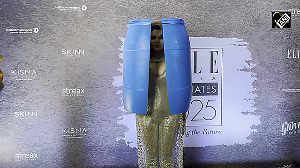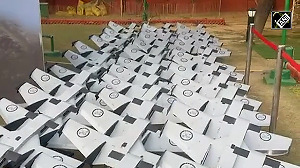 The Prime Minister’s Office has called a meeting on Wednesday to discuss re-launching cash transfers for the cooking gas subsidy.
The Prime Minister’s Office has called a meeting on Wednesday to discuss re-launching cash transfers for the cooking gas subsidy.
“The PMO will take a meeting on Wednesday to discuss the roll-out of direct benefit transfer for liquefied petroleum gas,” a finance ministry official told Business Standard on condition of anonymity.
The meeting is likely to work out a strategy to reach cash into individual bank accounts.
Over 62 million new bank accounts have been opened under the Jan Dhan scheme in the last two months.
Representatives from the department of financial services, Unique Identification Authority of India, National Population Register, National Payments Corporation of India and ministry of petroleum, along with partner banks, will be present at the meeting.
The Cabinet on Saturday announced that cash transfers for cooking gas, put on hold by the previous United Progressive Alliance government because of patchy implementation, would be re-started in November in 54 districts with high enrolment for Aadhaar, a biometric identification system.
It will be rolled out nationwide from next January.
The National Democratic Alliance government is expecting to save Rs 10,000 crore (Rs 100 billion)
“The operative part of the project will be discussed,” said another government official.
Cooking gas consumers who do not have bank accounts will continue to get cylinders at the subsidised price for three months.
Those who do not join the scheme after three months will get a further three months to sign up.
During this period, they will be supplied gas cylinders at the market price, but the subsidy will be credited into their bank accounts as soon as they join the scheme.
The Cabinet, after approving the modified scheme, had said it would not put consumers through the hardship they faced in the earlier attempt to get cash transfers going.
Before being shelved, cash transfers for cooking gas were working in 290 districts and Rs 5,000 crore (Rs 50 billion) had been deposited into Aadhaar-linked bank accounts.
The cooking gas subsidy made up 90-95 per cent of all cash transfers the government attempted for welfare delivery.
Launched in January 2013, cash was to be directly debited for scholarships, pensions, maternity benefits, wages for assured job schemes, and housing and employment doles.











